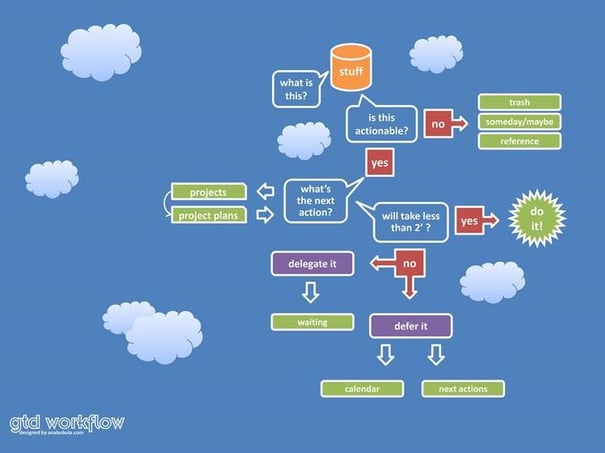Be the person you want to work with

In today’s working world in the digital era, we are constantly waiting for responses from our leaders, colleagues or clients, which sometimes prevents us from completing our activities.
This is normal and happens because everybody works on their own activities and wishes to avoid distractions. Even when it’s just about sharing some information or confirming a question that would allow us to complete the rest of our assignments— things that look simple—it doesn't happen that way. Requests accumulate, work is delayed, and frustration grows.
David Allen is a productivity consultant who has dedicated himself to study and analyze work processes and project management in companies. He has found that people generally participate in more projects and activities than they can properly manage. And leading a calendar does not fully cover the high demand for requests that we all handle, which generates frustration not only for those who expect something but also for those who receive the question and add it to a long list of pending requests.
To take more control of our time and activities, and to manage the expectations of our internal and external clients, David suggests his famous Getting Things Done (GTD) method. This basically helps us quickly evaluate the requests that come to us by asking the following: Can it be processed at that moment? Must it be scheduled for later? Or is it something for reference that doesn’t require our action? This process reduces workload, maintains a high level of responsibility and allows all stakeholders to have a portion of our attention, without compromising delivery of or falling into major distractions.

As seen in the image, we receive requests all day long, whether by email, meetings, calls, messages, visits to our offices and more. For each of them we will:
- Analyze and understand what is being asked
- Identify if something is expected of us:
- If not, it can be managed as informative— a notification, reference, or something that is not urgent for this very moment and it’s not impeding my or other peoples’ progress
- But if there really is something expected from us, we must quickly assess what we would need to do to complete that request
- If completing that request would take us less than two minutes to complete, we should do it immediately. Perhaps it’s just to provide an answer, clarify a concern, forward some information or approve something. It will reduce our pending activities, eliminate bottlenecks and allow both ourselves and the other party to move forward with our activities.
- Some activities may take more than two minutes to be completed, in which case they should be delegated to someone else who can complete it on the spot, or scheduled for the next free moment we have.
This process might seem difficult to achieve; we are programmed to not let distractors stop us from completing our assignments, but at the same time, other people may need our help and so that they, too, can complete their activities. GTD is simple; it makes us feel accountable for everything expected from us, reduces delays and speeds up everyone's activities. It makes it easier for everyone to get back to working on their corresponding deliverables.
This method is very easy to implement; it's just a matter of keeping it top of mind and applying it to EVERYTHING that comes into our hands. I personally apply it not only in my professional career, but throughout my life, and it helps me maintain control and oversight of everything I’m involved in. I used to have the picture above as the wallpaper of my PC, but now it’s etched into my mind. Perhaps keeping a copy of it around might help you do the same, adopting and adapting it in your entire life.
Put another way, make your goal to be the person you would want to work with… when requests arrive, process them under this method and you will see greater results not only in your productivity, but also in your reputation in the organization. Discuss it with your leaders, colleagues and teams; help them become high-performance professionals who place the same importance on their activities as they do for the requests of others. Help them realize that this doesn’t compromise their deliverables, nor those of others... Help them see the value of being completely accountable, with everything and everyone.



